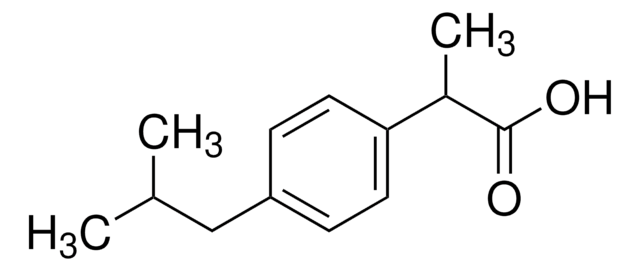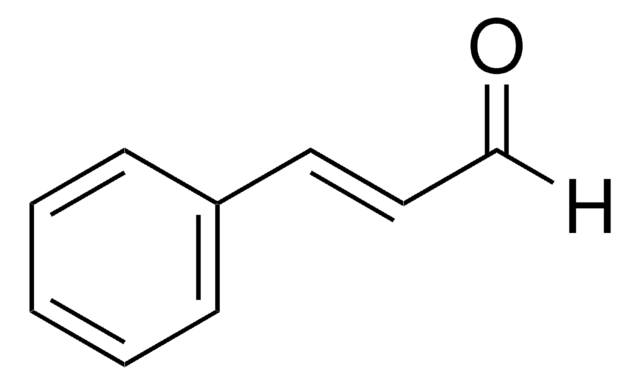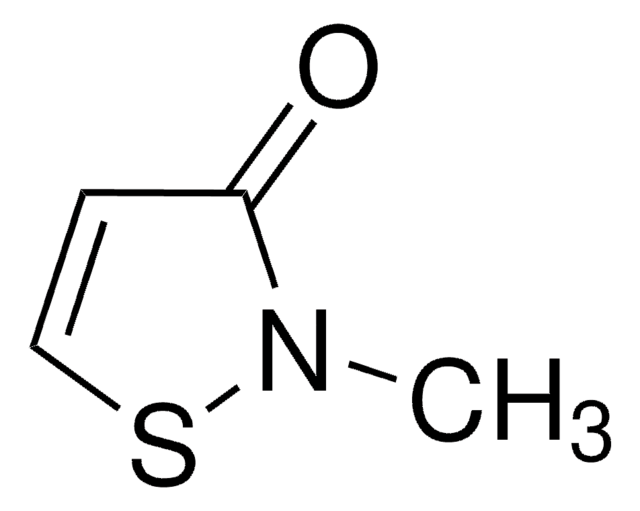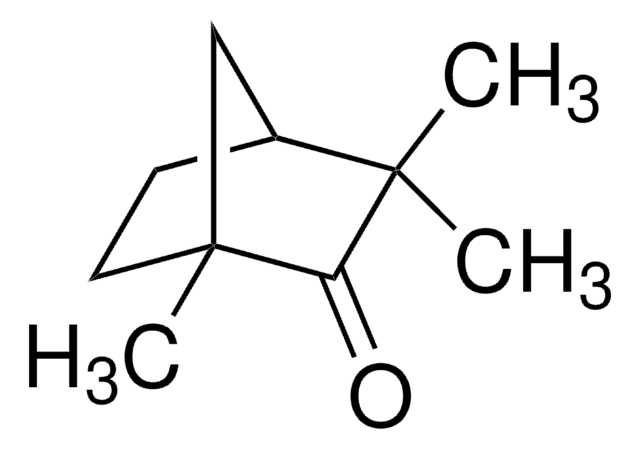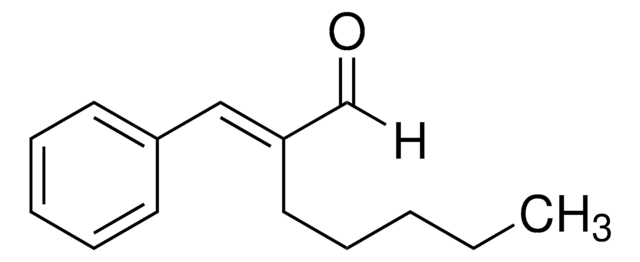82934
7-Hydroxycitronellal
Odorant used in allergy studies
Sinónimos:
7-Hydroxy-3,7-dimethyloctanal, Citronellal hydrate
About This Item
Productos recomendados
grade
for molecular biology
Quality Level
assay
≥95.0% (GC)
form
powder
density
0.92 g/mL at 20 °C (lit.)
storage temp.
room temp
SMILES string
[H]C(CC(C)CCCC(O)(C)C)=O
InChI
1S/C10H20O2/c1-9(6-8-11)5-4-7-10(2,3)12/h8-9,12H,4-7H2,1-3H3
InChI key
WPFVBOQKRVRMJB-UHFFFAOYSA-N
General description
Application
- contact sensitization studies to identify allergens present in cosmetic preparations
- elucidation of molecular pathways related to allergic reactions
- analytical standard
signalword
Warning
hcodes
Hazard Classifications
Eye Irrit. 2 - Skin Irrit. 2 - Skin Sens. 1
Storage Class
10 - Combustible liquids
wgk_germany
WGK 1
flash_point_f
Not applicable
flash_point_c
Not applicable
ppe
Eyeshields, Gloves, type ABEK (EN14387) respirator filter
Elija entre una de las versiones más recientes:
¿Ya tiene este producto?
Encuentre la documentación para los productos que ha comprado recientemente en la Biblioteca de documentos.
Nuestro equipo de científicos tiene experiencia en todas las áreas de investigación: Ciencias de la vida, Ciencia de los materiales, Síntesis química, Cromatografía, Analítica y muchas otras.
Póngase en contacto con el Servicio técnico
